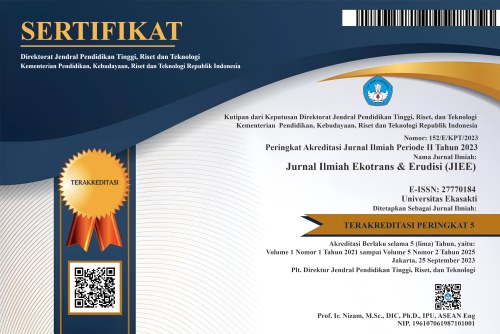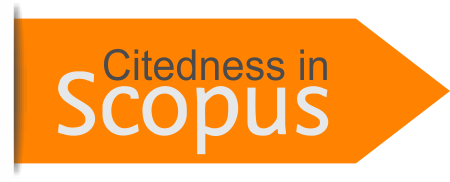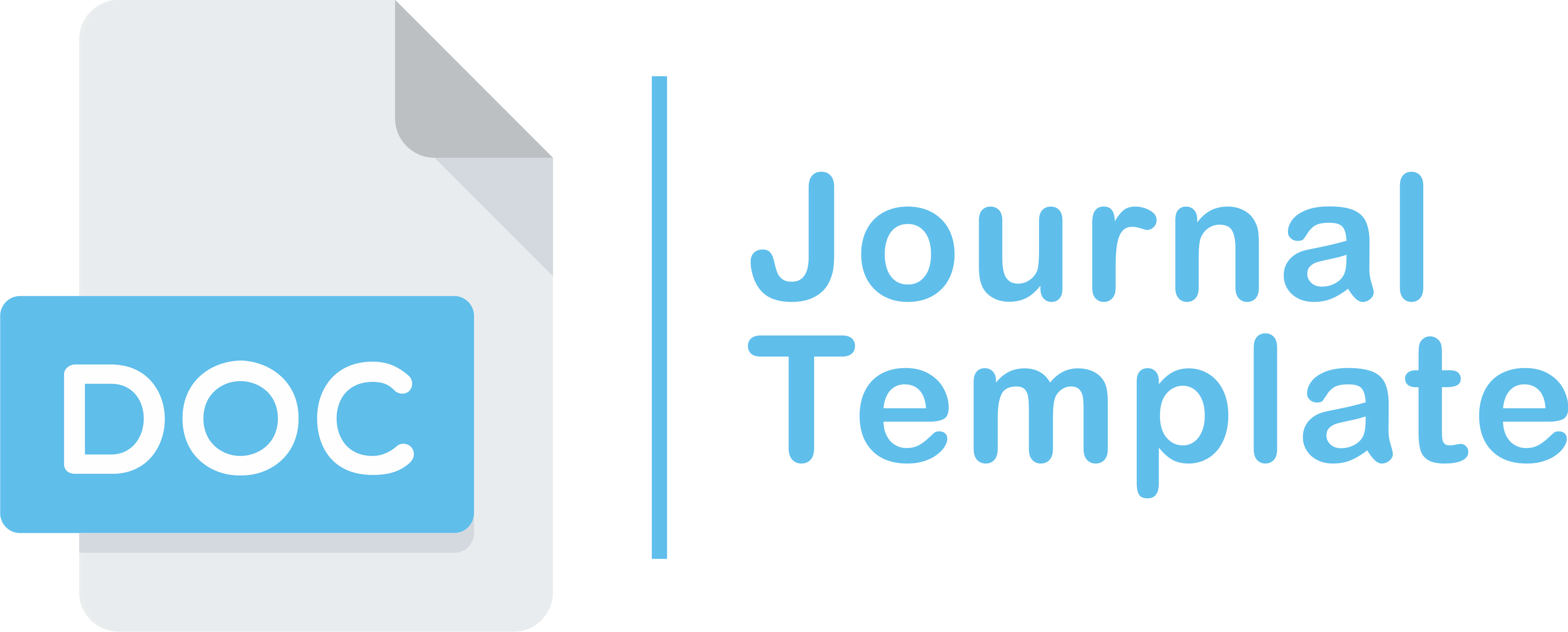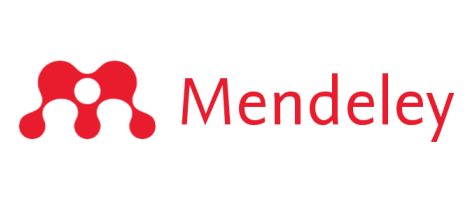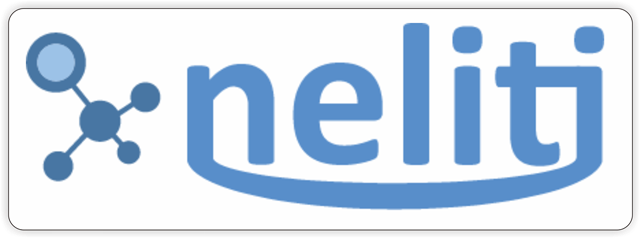The Effect of Training and Work Motivation on Professionalism and Employee Performance at The Banjarmasin City Women's Empowerment and Child Protection Office
DOI:
https://doi.org/10.69989/z3bb2v30Keywords:
Training, Work Motivation, Professionalism, Employee Performance, SmartPLSAbstract
This study aims to analyze the effect of training and work motivation on professionalism and employee performance at the Banjarmasin City Women’s Empowerment and Child Protection Office. The research employed a quantitative approach with a survey method. The population consisted of all employees in the office, and a saturated sampling technique was applied, resulting in 71 respondents. Data were collected through a Likert-scale questionnaire and analyzed using Partial Least Squares (PLS) (SmartPLS 3.2.0) to test both direct and indirect effects, with professionalism serving as a mediating variable. The findings reveal that training and work motivation have a positive and significant effect on both professionalism and employee performance. Professionalism also has a positive and significant impact on performance, mediating the relationship between training, work motivation, and performance, although the direct effects are more potent than the indirect effects. These results underscore the importance of enhancing training quality and effectively managing work motivation to promote professionalism and achieve optimal employee performance.
Downloads
References
Allen, N. J., & Meyer, J. P. (1993). Armstrong, M. (1999). Human resource management (Sofyan & Haryanto, Trans.). PT Elex Media Komputindo.
Azlansya, S. (2019). The influence of training on employee performance. Journal of Management and Business, 3(1), 15–25.
Baldoni, J. (2005). Motivation: Secrets of great leaders. McGraw-Hill.
Bambang, W. (2010). Human resource management. Sulita.
Bohlander, G., & Snell, S. (2010). Principles of human resource management (15th ed.). South-Western Cengage Learning.
Cheer, A. (2001). Press ethics: Professionalism with conscience. Humanities Utama Press.
Dessler, G. (2010). Human resource management (10th ed., Vol. 1). PT Index.
Fahmi, I. (2012). Manajemen kinerja: Teori dan aplikasi. Alfabeta.
Fauzi, A., & Arifin, J. (2007). Quantitative aspects of human resource management. PT Elex Media Komputindo.
Gomes, F. C. (2003). Manajemen sumber daya manusia. Andi Offset.
Hairunnisa, M. (2018). The influence of professionalism on performance. Journal of Human Resource Development, 5(2), 44–56.
Handoko, H. (2001). Manajemen personalia dan sumber daya manusia. BPFE Yogyakarta.
Husada, I. S. (2015). The effect of training on employee performance. Journal of Business and Economics, 4(2), 98–107.
Maister, D. H. (1998). True professionalism. Free Press.
Mangkunegara, A. A. A. P. (2011). Human resource management. PT Remaja Rosdakarya.
Mangkunegara, A. A. A. P. (2013). Human resource management. PT Remaja Rosdakarya.
Marhadika, C. (2018). The effect of training on the performance of the District Education Office. MANKEU Journal, 3(1), 1–10.
Mumus. (2013). Education and training as a measure of civil servant competence. Journal of Public Administration, 5(4), 1005–1014.
Notoatmodjo, S. (2003). Pengembangan sumber daya manusia. Rineka Cipta.
Robbins, S. P. (2001). Organizational behavior. Prentice Hall.
Soffa, N. A. (2018). The effect of work motivation on professionalism and performance. Journal of Management Research, 7(2), 123–132.
Supriadi, D. (1998). Professionalization of teachers. Adicita Karya Nusa.
Sutrisno, E. (2016). Manajemen sumber daya manusia. Kencana.
Torang, S. (2014). Organisasi dan manajemen. Alfabeta.
Yakin, M. (2021). Professionalism as a mediator in the relationship between work motivation and performance. Journal of Human Capital, 9(1), 56–65.
Yunidasari, R. (2020). The influence of training on employee professionalism. Journal of Human Resource Development, 8(3), 210–218.
Yunifar, Y. (2017). The effect of training on motivation and performance. Journal of Organizational Development, 6(2), 45–53.
Downloads
Published
Issue
Section
License
Copyright (c) 2025 Muhammad Ramadhan (Author)

This work is licensed under a Creative Commons Attribution-ShareAlike 4.0 International License.
Copyright Notice
An author who publishes in the journal "Jurnal Ilmiah Ekotrans & Erudisi" agrees to the following terms:
Author retains the copyright and grants the journal the right of first publication of the work simultaneously licensed under the Creative Commons Attribution-ShareAlike 4.0 License that allows others to share the work with an acknowledgement of the work's authorship and initial publication in this journal
Author is able to enter into separate, additional contractual arrangements for the non-exclusive distribution of the journal's published version of the work (e.g., post it to an institutional repository or publish it in a book) with the acknowledgement of its initial publication in this journal.
Author is permitted and encouraged to post his/her work online (e.g., in institutional repositories or on their website) prior to and during the submission process, as it can lead to productive exchanges, as well as earlier and greater citation of the published work (See The Effect of Open Access).
All materials in this site are protected by the law. It is prohibited to quote a part of or all of this website contents for commercial purposes without the permission or consent of the editors.
If anyone finds one article or more in this journal violate or potentially violate one’s copyrights, please report to us through e-mail of Principle Contact.
Legal-formal aspects of accessing any information and manuscript in this journal website refer to the provision of license Creative Commons Attribution-Share Alike (CC BY-SA). Read more about the Creative Commons Attribution-ShareAlike 4.0 Licence here: https://creativecommons.org/licenses/by-sa/4.0/.
All information available in 'Jurnal Ilmiah Ekotrans & Erudisi' is academic in nature. 'Jurnal Ilmiah Ekotrans & Erudisi' is not responsible for loss due to the abuse of information in the website.
Information
Notice about change in the copyright policy of the journal 'Jurnal Ilmiah Ekotrans & Erudisi' : "From Volume 1, Nomor 1 onwards the copyright of the article published in the journal 'Jurnal Ilmiah Ekotrans & Erudisi' will be retained by the author"
Privacy Statement
The names and email addresses entered in this journal site will be used exclusively for the stated purposes of this journal and will not be made available for any other purpose or to any other party.

















